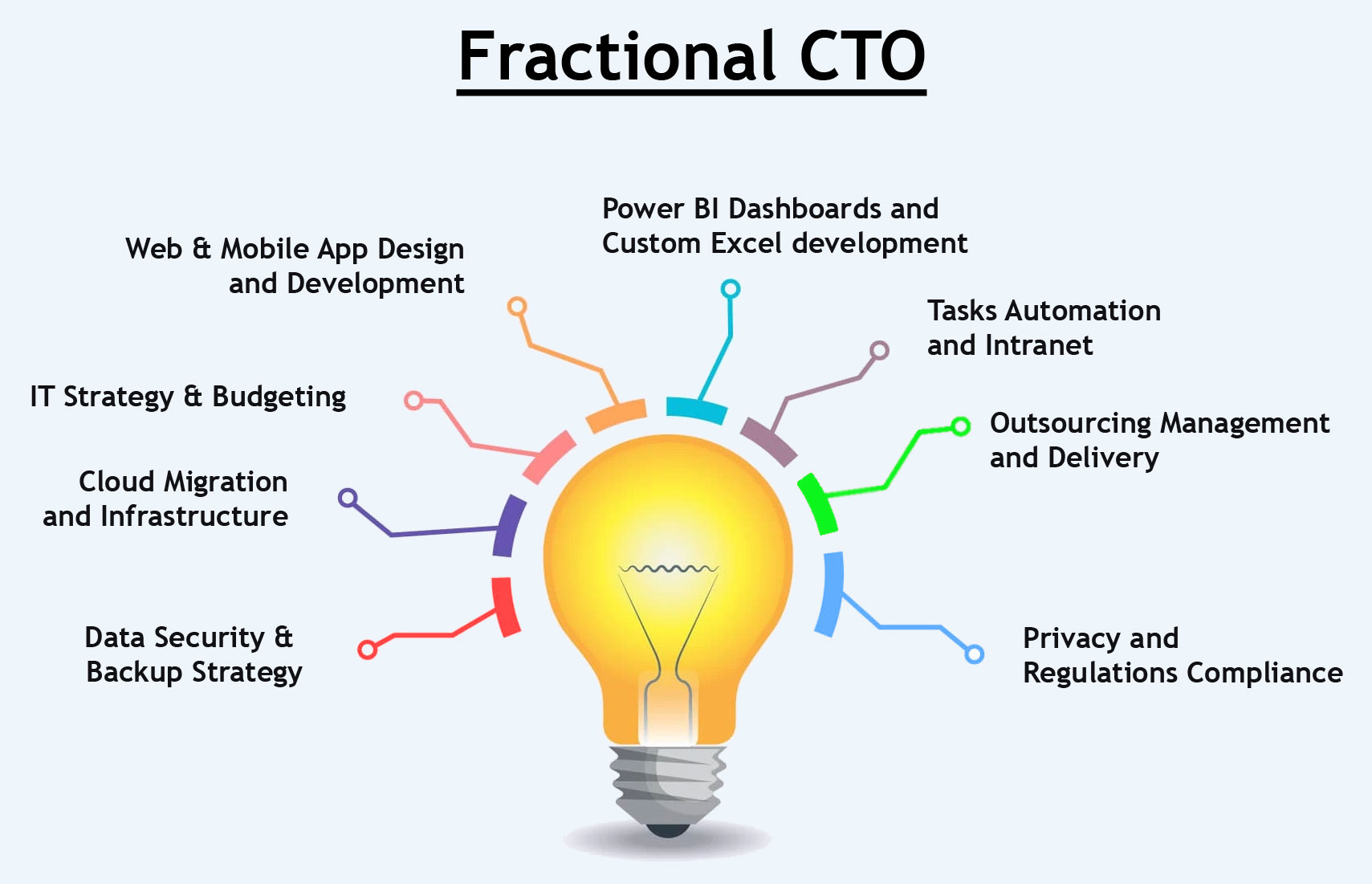
Fractional Chief Technology Officers (CTOs) play a pivotal role in shaping the technological direction and strategy of a company. Their responsibilities can span a wide range of fields, depending on the organization’s size, industry, and specific needs.
Just like there are various types of surgeons specializing in different areas of medicine, the specific skills of CTOs can vary substantially with each their own unique area of expertise.
Why do I want a Chief Technology Officer?
In today’s fast-paced technology landscape, adaptability and innovation are key to staying relevant. Startups and small-to-mid-sized businesses often require a variety of specialized IT services. However, hiring a full-time Chief Technology Officer (CTO) may be financially impractical, particularly for budget-conscious firms.
That’s where the concept of a fractional CTO enters the picture. This model allows companies to tap into the expertise of experienced tech leaders on a flexible, part-time basis. Let’s find out more about fractional CTOs, their pricing structures, and how you can take advantage of this resource to secure a competitive advantage.
What is a Fractional CTO?
A Fractional CTO (Chief Technology Officer) is a part-time technology leader who offers strategic tech guidance for a fraction of the cost of a full-time CTO.
Why would I hire a Fractional CTO?
Cost-effectiveness
You can save money by paying only for the hours or project you need, instead of a full-time salary and benefits package.
Expertise
A Fractional CTO allows you to tap into a vast pool of knowledge and experience spanning multiple industries and technologies, thus helping you drive growth and innovation.
Flexibility
You gain the ability to modify the level of engagement and project scope based on your evolving requirements, ensuring that you always have the right level of support without the need for hiring or firing.
Risk Management
You gain the ability to mitigate risks related to technology choices and investments, drawing on the insights and best practices of a seasoned expert.
Mentorship
A Fractional CTO provides valuable guidance and feedback, helping you improve your own technology leadership skills and vision.
Leadership and Team Management
A Fractional CTO brings strong leadership skills and the ability to manage teams effectively, helping you foster a culture of innovation and collaboration within your organization. By working closely with your team, a Fractional CTO can help you identify areas for improvement, implement best practices, and drive ongoing learning and development, ultimately helping you achieve your technology goals and objectives
Here are some of the core areas commonly managed by CTOs
Technology Strategy and Vision
Product Development and Management
Leading the development of technology-based products or enhancements, from conception through launch. This includes overseeing product design, development, and deployment processes.
Cybersecurity and Data Privacy
Ensuring the security of company data and protecting it against unauthorized access, breaches, and other cyber threats. This also involves compliance with data protection regulations.
Vendor and Stakeholder Management
Negotiating with and managing relationships with technology vendors, service providers, and other external stakeholders. This can include partnerships for technology development or integration.
Budget and Financial Oversight
Managing the technology budget, making cost-effective decisions regarding technology investments, and ensuring a good return on investment for technology expenditures.
Research and Development (R&D)
Overseeing research and development efforts to innovate and develop new products or services. This may involve staying ahead of technology trends, ensuring the company remains competitive, keeping track of all necessary documentation and applying for government subsidies and grants.
IT Infrastructure and Operations
Managing the company’s IT infrastructure to ensure it supports business operations effectively. This covers data centers, network architecture, hardware, software, and cloud services.
Team Leadership and Development
Building and leading the technology team, including hiring, training, and mentoring IT staff. CTOs are responsible for fostering a culture of innovation and technical excellence.
Digital Transformation and Innovation
Leading digital transformation initiatives to leverage technology in transforming business processes, enhancing customer experiences, and creating new business models.
Regulatory Compliance and Standards
Ensuring that the company’s technology practices comply with relevant laws, regulations, and industry standards, particularly in highly regulated sectors like finance and healthcare.

